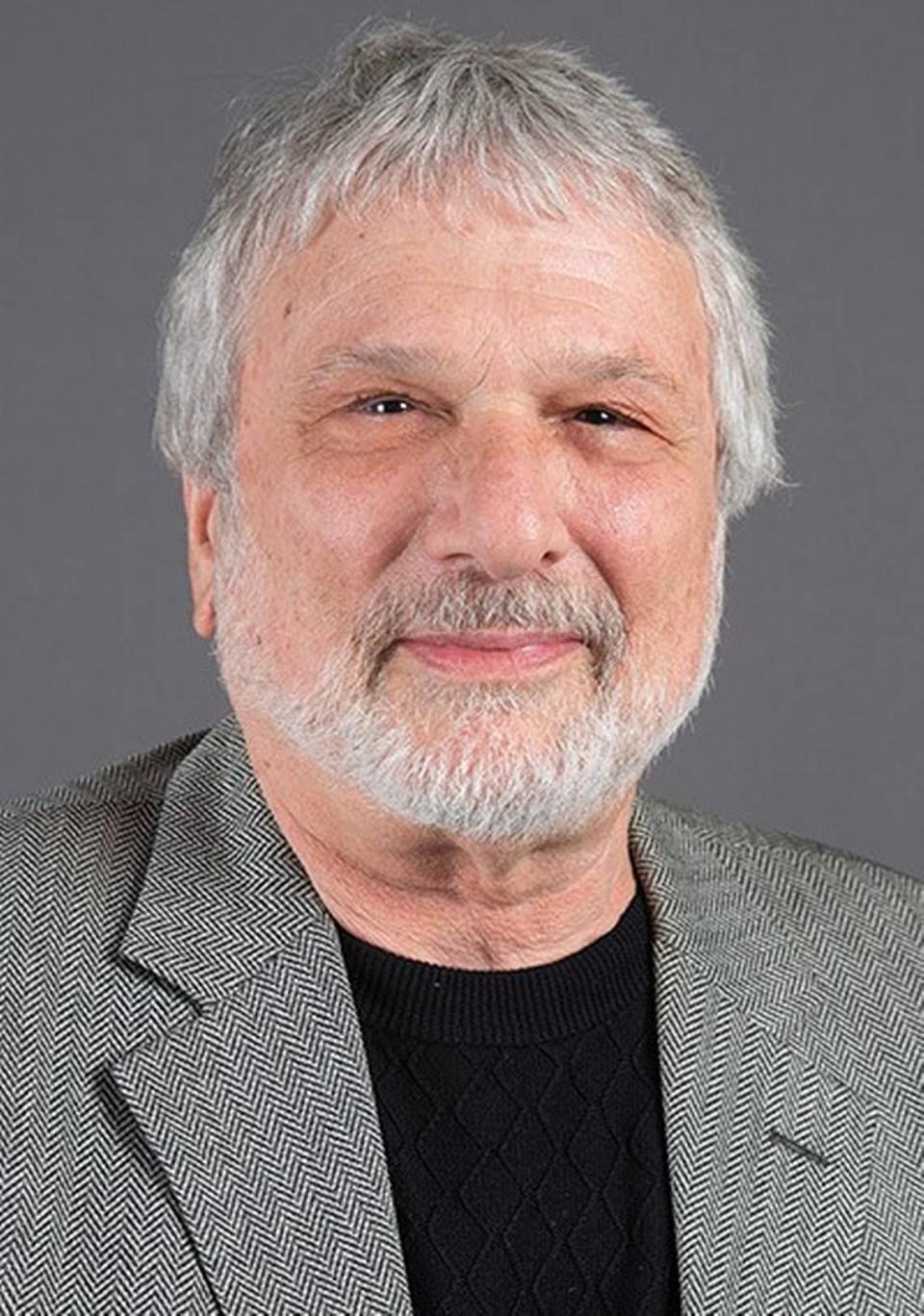In his years as president, Donald Trump acted like ‘Racketeer-in-Chief | Opinion
- Oops!Something went wrong.Please try again later.
- Oops!Something went wrong.Please try again later.
On Jan. 6, 2021, a lame duck tried to stop the official certification of Joe Biden as the 46th president of the United States. Several days later President Trump was impeached for a second time — for inciting an insurrection, only to be acquitted on Feb. 13 by his obedient Republican allies in the U.S. Senate.
Effectively, this was the second “jury nullification” carried out by these senators in 12 months. Once again, Trump was found to be above the law while his criminality was normalized.
Benjamin Bugsy Siegel and John Joseph Gotti Jr. are two of the more notorious bosses in the history of American organized crime. Few people in their criminal orbits showed disloyalty or publicly crossed them. These mobsters were feared for their ruthlessness and their willingness to exert undue influence on others. Siegel and Gotti were proficient at using money and resources that did not belong to them. These outlaws were judicious in counteracting their illegal conduct and were rarely accountable for damages done.
Their murderous ways aside, these 20th century kingpins had nothing on Trump and his unconventional 21st century racketeering. The gangsters had the ability to corrupt people and neutralize the forces of legal regulation. As the CEO of the Trump Organization and former president — and because of his pernicious vindictiveness, as well as his enthusiasm for abusing the law — sycophants have capitulated to Boss Trump.
With little opposition or push back, Trump, the House Freedom Caucus and the MAGA base steamrolled the Republican Party. He took full control of the party apparatus in less than 18 months, with a lot of in-your-face rudeness, little principle and a tax break for the very rich and powerful in corporate America. Less than three years later, a divided nation found itself living in the aftermath of a failed coup d’état.
Currently, from his winter residence in Palm Beach — his Mar-a-Lago golf club and catering facility — Trump Donald still holds court and has absolute power over the GOP. Should Congress fail to pass the John R. Lewis Voting Rights Act in the next 30 days and should Trump not find himself wearing an orange jumpsuit in the next 30 months, then by January 2025, the mobster-in-chief and his comrades in lawlessness likely will find themselves dividing their time between the White House, Palm Beach and Bedminster during the summer — whether he fairly wins the 2024 presidential election or corruptly steals it.
As a criminologist who scrutinizes the pathology of harmful individuals, the construction of crime and punishment, and the formalities of unequal justice, I wanted to know how and why Trump was able to operate a lawless enterprise within an incorporated world of entrepreneurial entities from 1980 and up through the 2016 presidential election, and subsequently from within the the White House.
I have investigated the “life course” of Trump, a celebrity con artist, a master gaslighter and a shrewd racketeer. I have also examined three generations of Trump businesses, habitual mayhem and struggles for economic and political power. In a nutshell, over the course of five decades, Trump’s modus operandi of unceasing lawlessness has advanced his business and political career.
These techniques were made possible by abuses of power, and legal impunity. Over these years, Trump has been accused of sexual assault, tax evasion, money laundering, non-payment of employees, insurrection, and the defrauding of tenants, customers, contractors, investors, bankers, and charities. Though Trump is a generalist and multi-opportunity offender, the most fitting label is that of racketeer.
These rackets have often involved internally owned shell companies created for the purposes of illegally sustaining and transferring the family wealth. Likewise, his financial accounting arrangements regularly engage in various forms of looting by maintaining, for example, two sets of cooked books brought to light most recently when the Manhattan District Attorney’s office criminally indicted the Trump Organization and its comptroller Allen Weisselberg for allegedly falsifying business records, tax fraud and committing a criminal scheme to defraud.
Several of their racketeering operations circulated through and within the Trump International Hotel a few blocks away from the White House, including Trump’s work-arounds of the Foreign Emoluments Clause, his foreign and domestic pay-to-play schemes and his biggest money-making scam of all — his anti-democracy fundraising campaigns, such as Stop the Steal, that had raised in less than one year more than $250 million.
Gregg Barak is an emeritus professor of criminology and criminal justice and co-founder and North American Editor of the Sage Journal of White Collar and Corporate Crime. His 10th book, “Criminology on Trump,” will be published in May.


